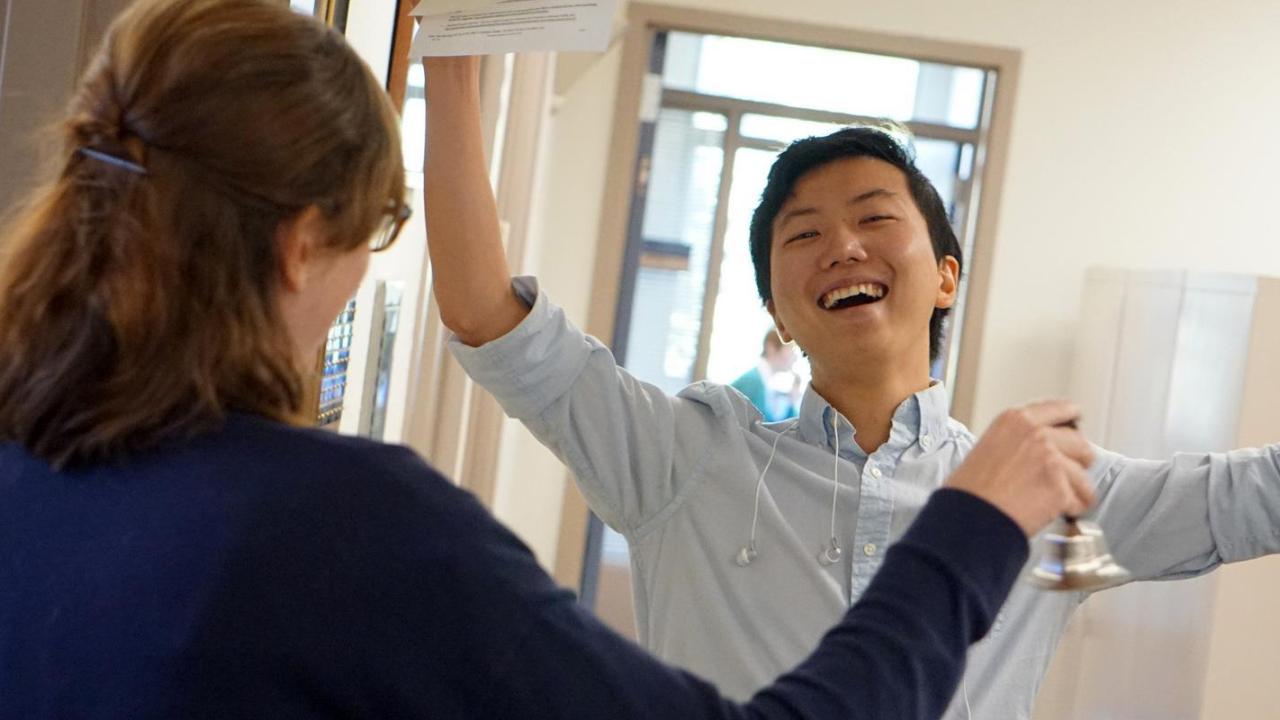
7 Tips to Help You Successfully Complete Your Dissertation
Let’s face it - writing is hard! Writing your thesis/dissertation is a lot like long-distance running; it requires isolation, endurance, time, and motivation. Most doctoral students are running a long-distance marathon for about three years. Here are seven quick tips to help you organize things well before your final deadline.
1. Keep your thesis/dissertation committee up-to-date on your progress.
You want to communicate with all members of your committee regularly. Schedule meetings, at least once a year in the beginning, and much more frequently as you approach your final draft. You do not want any surprises about your committee member’s expectations, and you need some structure to keep going. You need regular feedback. Establish timelines your entire committee agrees upon. If there is an issue with a committee member, consider making some changes to your committee so you have the support and engagement you need to succeed.
2. Don’t wait to ask for help.
So many students who feel the most anxiety and stress about the thesis/dissertation never wanted to admit they needed help earlier in the process. Remember imposter syndrome. It’s not limited to early-career graduate students. The thesis/dissertation is the ultimate test of resiliency and resourcefulness, and the rigor sometimes leaves students feeling inadequate. Maybe you feel as if your writing isn’t strong enough. Maybe you feel embarrassed to show your committee how little you have researched or written. If you’re feeling anxious or unsure of yourself, please do not wait to seek help.
Many faculty and graduate students do not know about the thesis/dissertation support groups offered on campus. Our resident graduate student counselor, Dr. Bai-Yin Chen, hosts these groups to help students with goal setting, time and stress management, and problem-solving. Bai-Yin also provides discreet counseling services in Walker Hall, allowing you to get the help you need without worrying about running into undergraduates. Think of counseling as self-care and panic prevention. Learn more about our counseling and support services on the Graduate Studies website, or email Dr. Chen at bchen@shcs.ucdavis.edu.
3. Face conflict and confusion head-on.
Does your major professor never email you back? Are you not getting any feedback from your thesis/dissertation chair? When you are in the final months of writing your final draft, the last thing you need to be dealing with is long-ignored interpersonal issues. Approaching your thesis/dissertation chair with complaints can be daunting. Seek advice from trusted colleagues, mentors, and advisors on how to have these conversations. You can talk to your program coordinator, advisor at Graduate Studies, the Associate Dean for Graduate Students and Postdoctoral Scholars Ellen Hartigan-O’Connor, or even the UC Davis Office of the Ombuds. You have a built-in support network – don’t be afraid to use it!
4. Plan the last four weeks.
Faculty have four weeks to review the thesis or dissertation. However, you cannot necessarily assume the faculty will all be in their UC Davis offices reading thesis/dissertations the last four weeks before the big deadline. Faculty could be on sabbatical, traveling (always internationally it seems), or reading four other drafts. Be conscientious of their time and discuss a timeline that is reasonable for them. Yes, policy requires they return the draft in four weeks, but based on unique circumstances perhaps five weeks would be more appropriate.
5. Don't forget the signed title page requirement!
The most important submission for your degree besides the uploaded thesis/dissertation is undoubtedly the signed title page. Graduate Studies requires a signed title page from all committee members. Though this coordination will add a little time to your final submission, you cannot receive the degree until you have that title page. Graduate Studies accepts digital signatures. You must upload the signed title page as part of the filing process in GradSphere.
6. Make the important decisions.
When you file your thesis or dissertation, you will be asked whether you wish to copyright and/or embargo your thesis or dissertation. ProQuest, the publisher for all UC Davis thesis or dissertations, will copyright your thesis or dissertation for a fee. You can also read more about copyright by following the links below. An embargo delays the public access of your thesis or dissertation for a limited amount of time - typically six months, 12 months, or two years. You might desire an embargo if you have sensitive data you do not want to be released immediately or if you are trying to get your chapters published elsewhere first. Your committee will advise you on what is best for your situation. Explore the links below to learn about your options
7. Make a pre-filing appointment with a Graduate Studies Advisor!
The Academic Services Unit manages the filing and graduation process for all grad students. SAA's are available to answer questions and provide support on email or by appointment. We can review your filing paperwork with you in a in-person or remote advising appointment, if you need assistance selecting a filing deadline, or have questions about formatting, make an appointment online with Graduate Studies to review any final steps before you file your thesis or dissertation.
Above all, if you have any questions or concerns about graduating, please reach out to your program’s Senior Academic Advisor here in Graduate Studies. There is an advisor here for each of you that can walk you through the final steps of your degree and help you navigate any hurdles you are facing.
